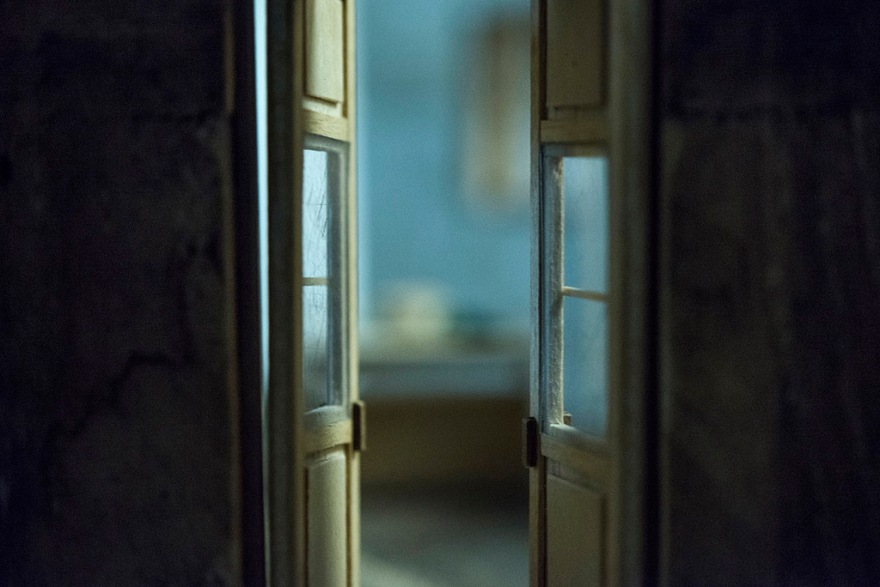
“Qui non ci sono attacchi terroristici, ma veniamo comunque colpiti dalla guerra in Siria. Siamo al “chilometro zero” del confine. Le bombe ci cadono addosso e tante persone muoiono per questo”.
Ho conosciuto Songül a un matrimonio in Turchia.
Aveva 22 anni e stava svolgendo il servizio civile obbligatorio come maestra (della durata dai 2 ai 4 anni, obbligatorio per i maestri neolaureati turchi che abbiano usufruito di sostegni economici da parte dello stato) nella Turchia dell’est, in un villaggio sul confine con la Siria.
Per 2 anni e mezzo mi ha scritto tutto ciò che le succedeva e io ho cercato di vedere con i suoi occhi e, grazie all’aiuto dello scenografo Alberto Nonnato, ho ricreato tramite modellini in miniatura ciò che lei mi stava raccontando.
Nel progetto le parole sono sue, estratte dalle mail che mi ha scritto.
Le immagini sono ciò che mi sono immaginata lei vedesse.
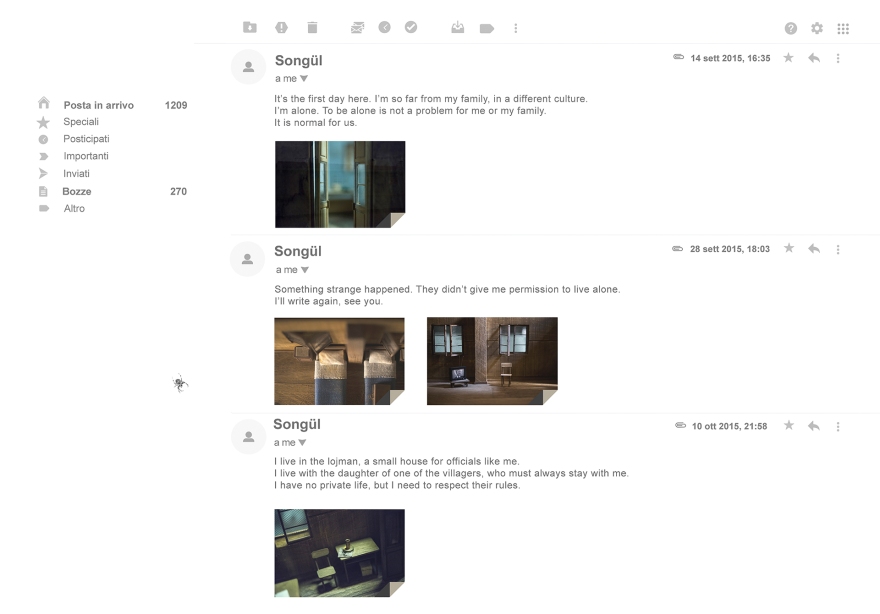
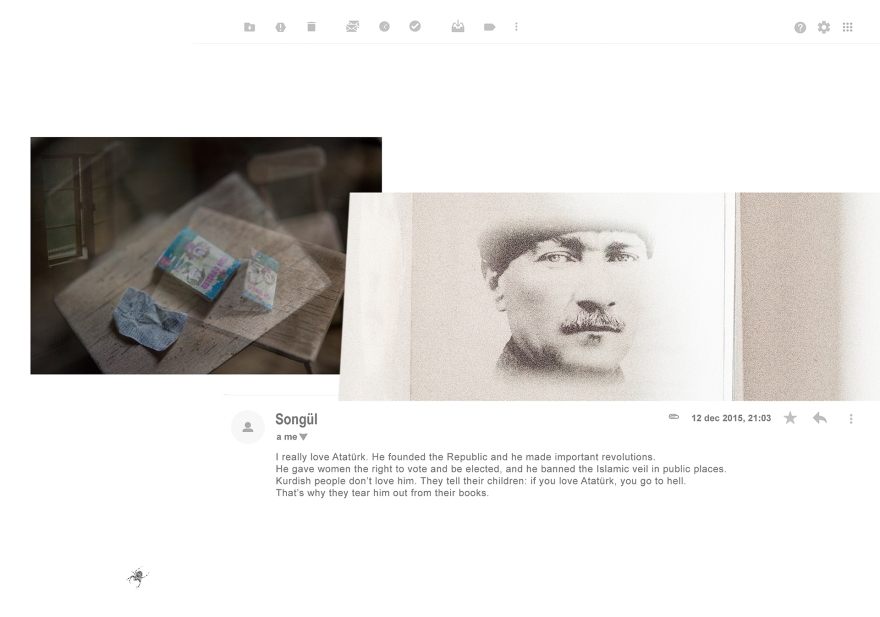
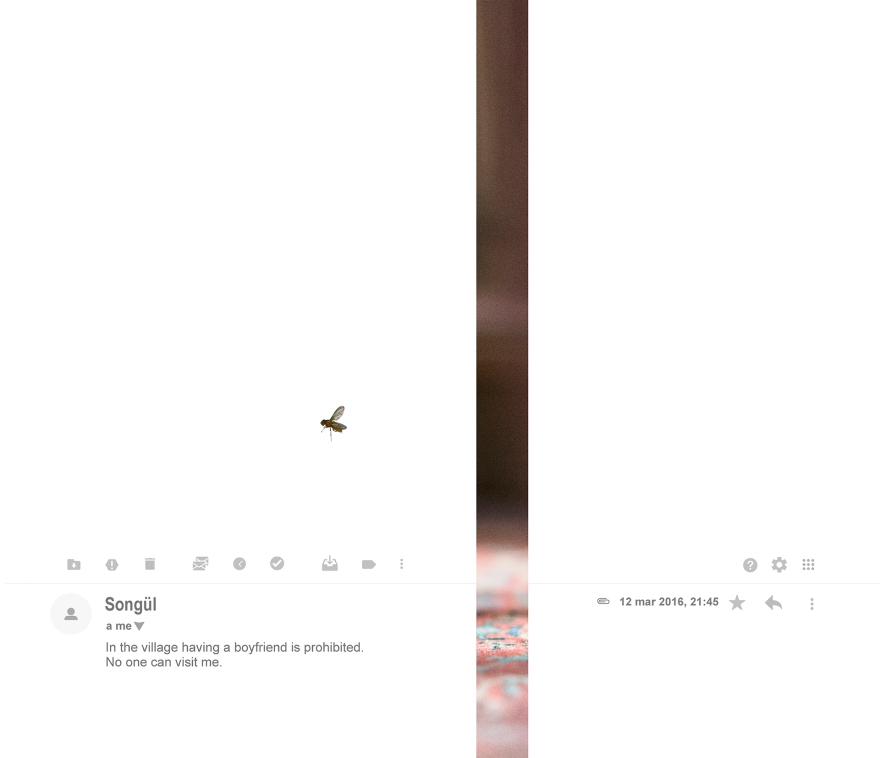
“Oggi è caduta l’ennesima bomba sul villaggio”.
“Non posso più stare qui”.
“Me ne devo andare”.

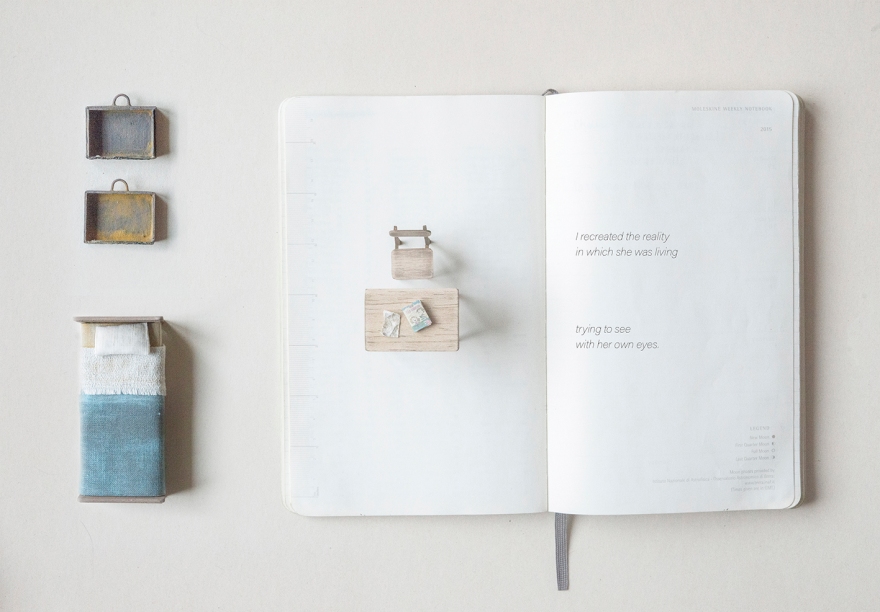
Il libro / the book
Nel 2018 Songül, incontra Guido Scarabottolo e Giuseppe Zapelloni che l’hanno reso un libro, edito da La Grande Illusion. È possibile acquistarlo allo shop online della Libreria SpazioB**K di Milano cliccando qui.
Guido Scarabottolo, Elogio della reticenza, Postfazione a Songül, La Grande Illusion, 2018
I messaggi (una volta sarebbero stati lettere) di una persona lontana raccontano, con parsimonia di parole, due anni di vita.
Immagini di interni ed esterni, senza persone, cercano di figurarsi gli eventi narrati, narrandoceli in parallelo con una lingua diversa.
Il secondo narratore vede con gli occhi del primo e noi vediamo attraverso i suoi.
Tutto si annebbia nella bassa definizione: racconti senza particolari, foto di oggetti ricostruiti con evidente parsimonia di mezzi…
Tutto ci costringe a un grande sforzo di immaginazione, di partecipazione che diventa affettuosa per la delicatezza di una storia che avrebbe, di per sé, una collocazione tragica.
Questa reticenza estrema, lungi dal nascondere informazioni, diventa un perfetto strumento di coinvolgimento, una spinta irresistibile a far propria un’esperienza che potrebbe restare lontana.
Senza mai perdere misura.
Non è questo quello che si chiede alle buone narrazioni?
Guido Scarabottolo
Stampa / Press

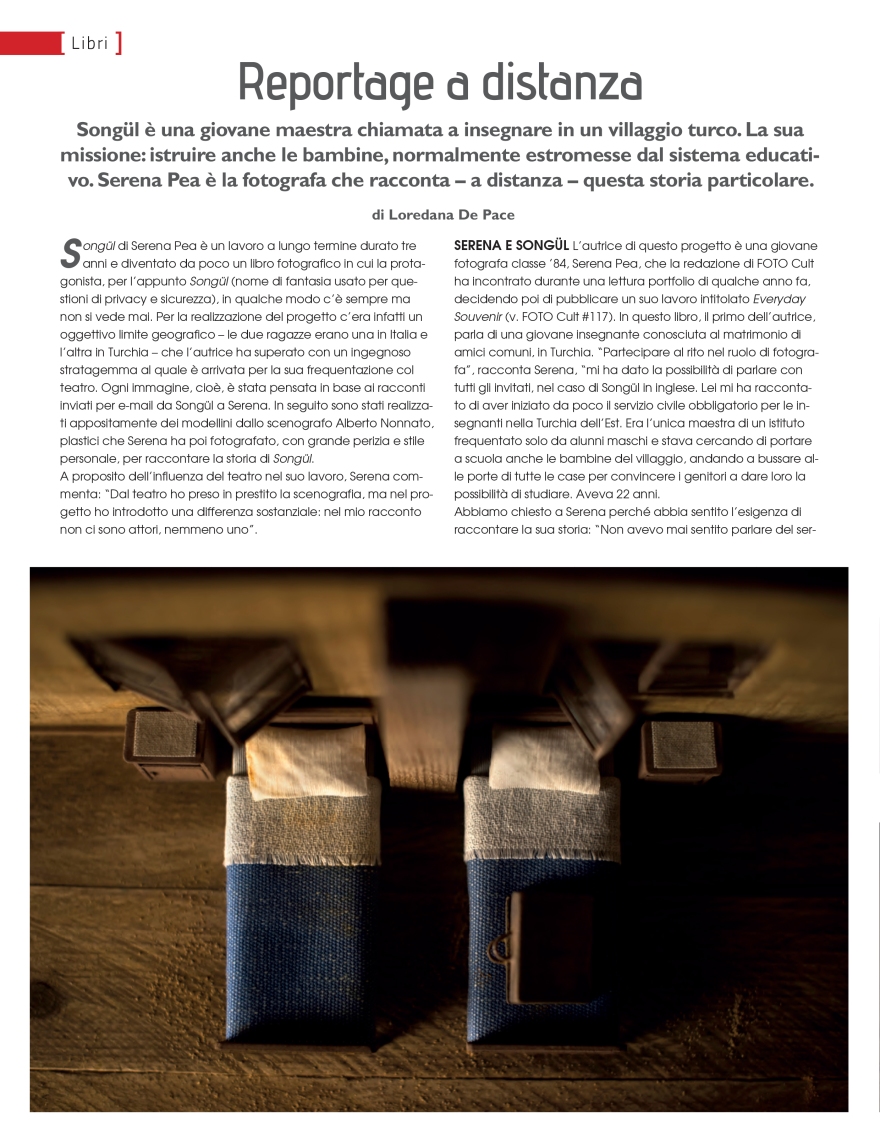
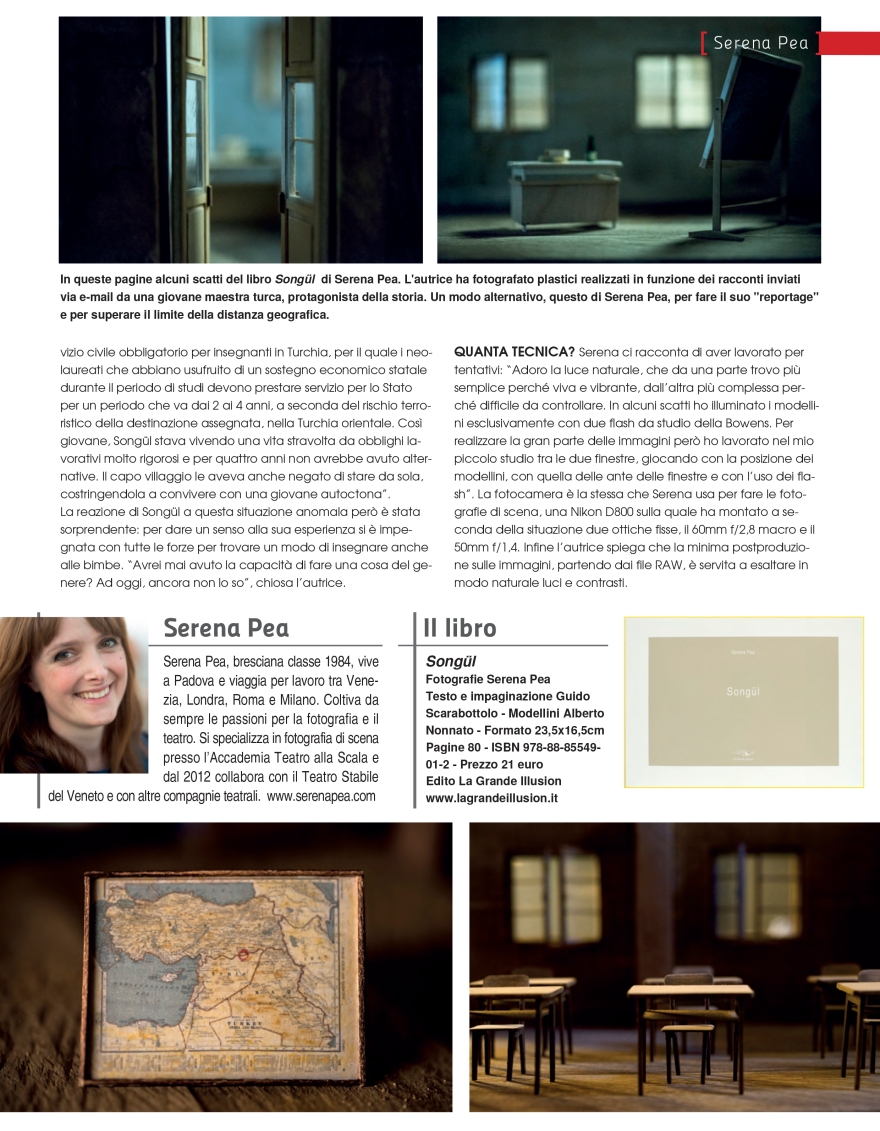
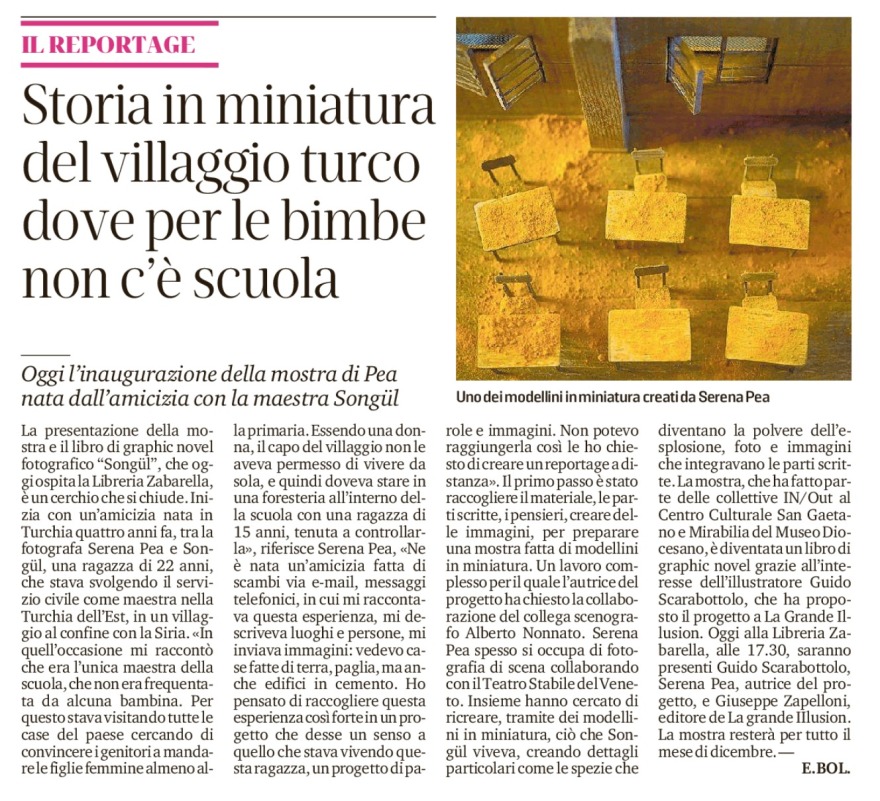
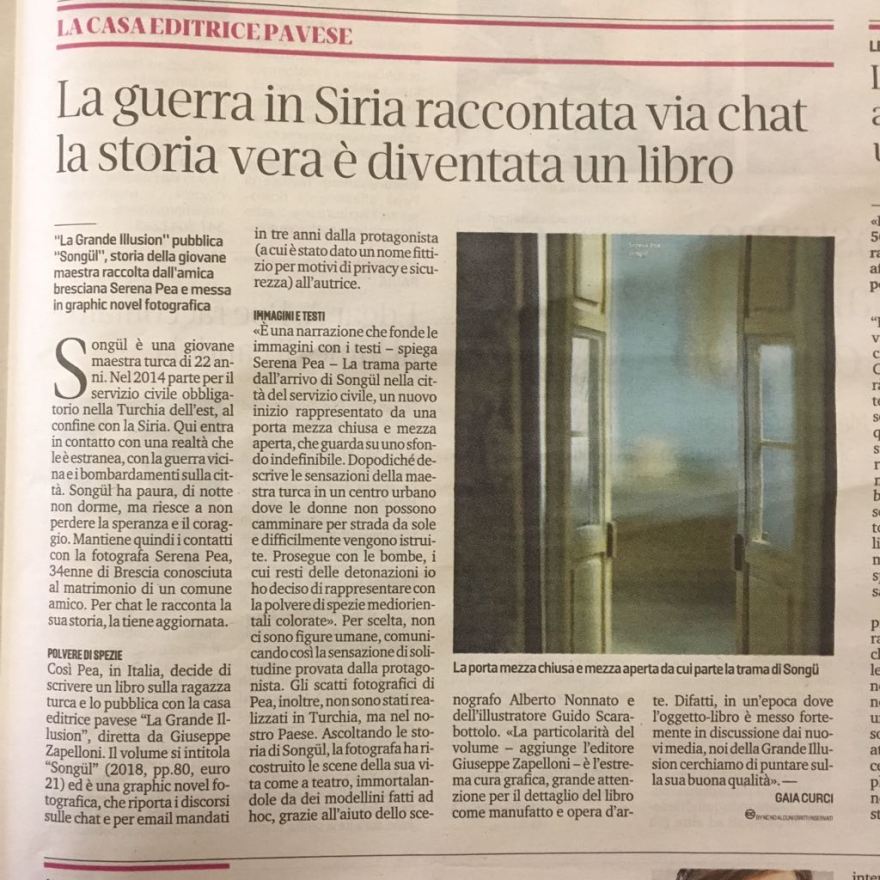
English
“Here we have no terrorist attacks, but we are hurt from Syrian war. We are “0 km” far from the border. Bombs fall down on us, and a lot of people die for that.” Songül
Songül, a fiction name, is a teacher that in 2014, at the age of twenty-two, left for compulsory civil service in Eastern Turkey, on the border with Syria. The duration of the service depends on the risk, the most dangerous places will allow you to leave after 2 years. Songül lived there for two and a half.
In the village in Eastern Turkey where she was sent girls can’t live by themselves so Songül was required to live in a house with another woman. If she needed anything, she had to ask a man to drive her around, but she couldn’t go by herself in a car with a man.
“There are no girls at school. I went to their homes. Some girls want to go to school. Their families will send them only to the primary school. At secondary they could fall in love with boys, that could be dangerous. They must take care of brothers, do housework and knitting.”
“The owner of the village threatened me. He thinks I want to raise villager’s awareness.”
When I met Songül, I was immediately fascinated by her story, and I asked her if I could document it. We faced two issues: Songül didn’t want to be directly pictured, that’s also why the imaginary name, and I wasn’t able to travel to Turkey. These limits made possible the creation of this long-distance reportage.
From 2014 to 2017, in the two and a half years of her service, Songül and I exchanged emails. These shared stories became the inspiration for this project; the words are hers, extracted from our exchanges, the photos are what I imagined she was seeing, that I realized photographing small scale models created in collaboration with the stage designer Alberto Nonnato.
“Today another bomb fell down on the village”
“I can’t stay here anymore.”
“I need to go”














